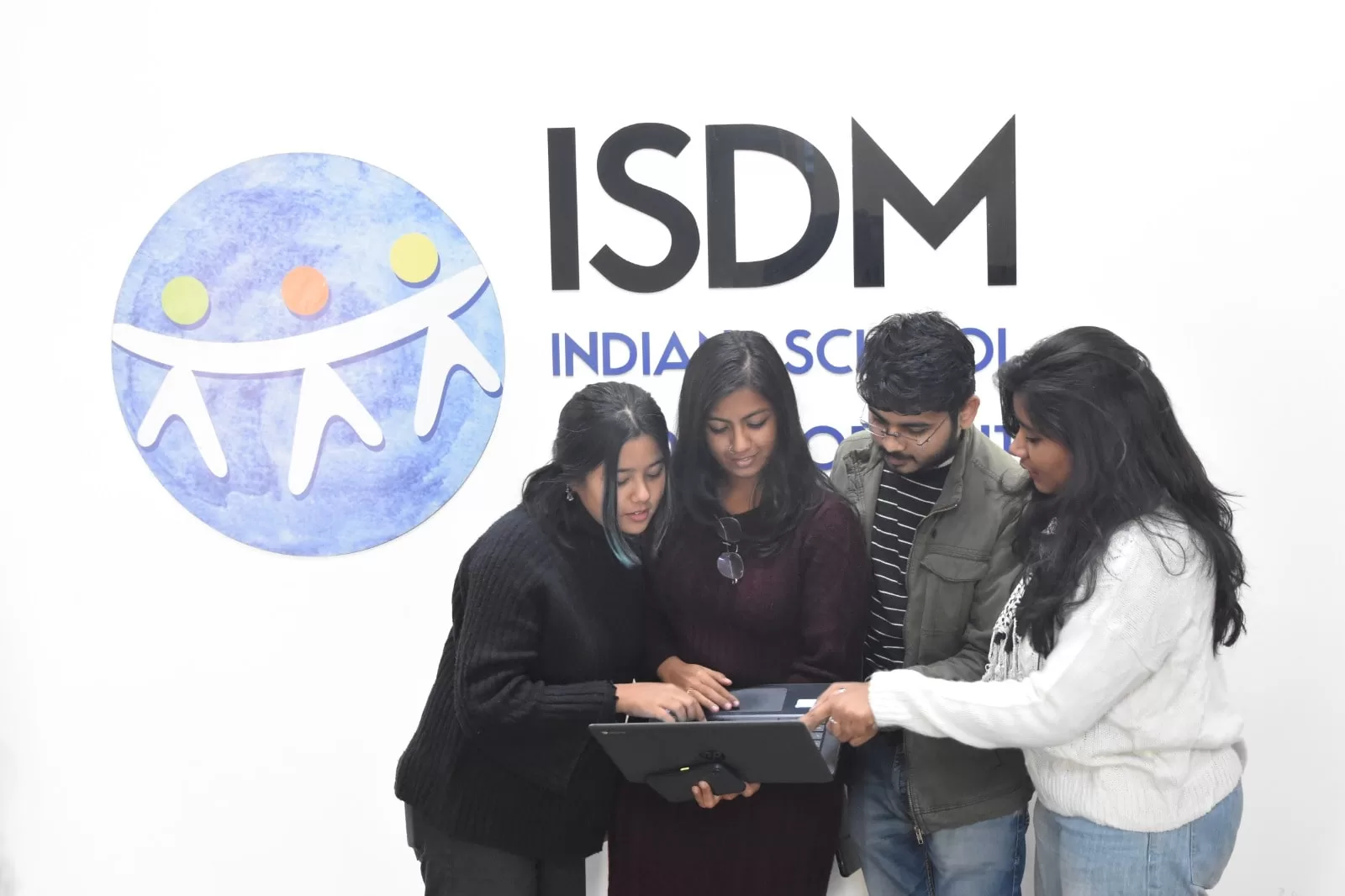As the new generation seeks meaning and financial stability in their professional lives, the social development sector experiences increased interest. However, a significant challenge for the sector arises from the lack of effective management. Beyond traditional social work roles, the development sector now offers career opportunities in managing and leading organisations. This shift poses a challenge for BSW and MSW graduates seeking better prospects as they lack the managerial skills essential for better prospects, given that their courses predominantly focus on traditional skills for working in the social sector.
This article explores these hurdles, highlighting a unique solution: the PGP-DM program at ISDM. Designed to empower individuals, this program opens doors to impactful careers in the social sector.
Table of Contents
Understanding Development Management
Development management is the strategic process of leading initiatives aimed at improving societies. It involves applying effective management principles to ensure these efforts are responsive and tailored to unique social needs. It focuses on continuous improvement, emphasizing collaboration and inclusiveness. In essence, it is about guiding and optimizing efforts to bring sustained positive changes to communities.
Key aspects and importance of effective development management in the social sector
Development management in the social sector involves several key aspects that are crucial for fostering positive societal changes. Here is an elaboration on the key aspects and the importance of effective development management:
1. Strategic Planning:
- Identifies and prioritises initiatives for addressing social issues.
- Ensures efficient resource allocation for maximum impact.
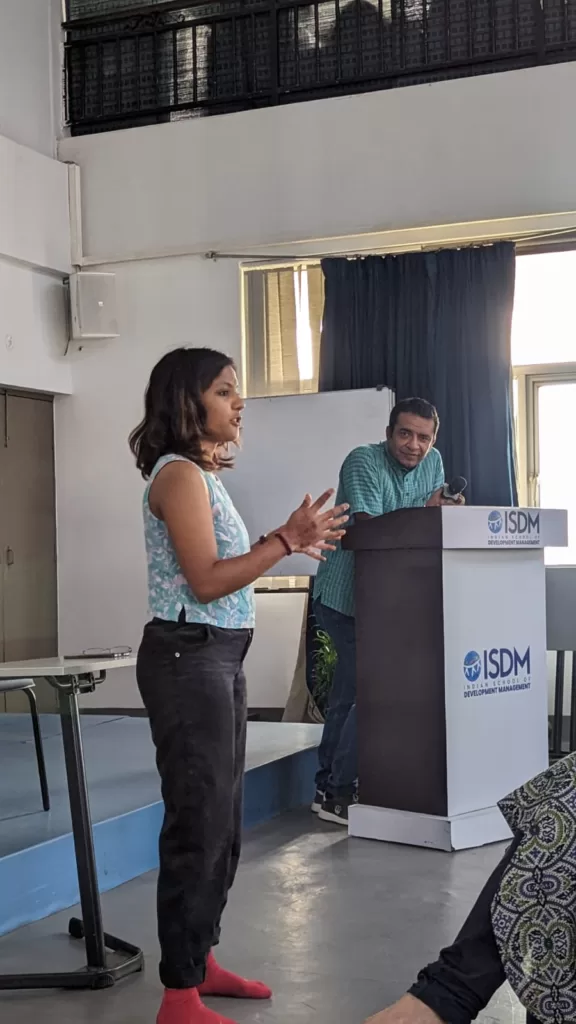
2. Resource Mobilisation:
- Efficiently mobilises financial and human resources.
- Enhances project implementation and sustainability.
3. Stakeholder Collaboration:
- Emphasises collaboration with diverse stakeholders.
- Ensures comprehensive solutions and community engagement.
4. Capacity Building:
- Develops capabilities of individuals and organisations.
- Improves long-term effectiveness.
5. Monitoring and Evaluation:
- Regular assessment of initiative progress.
- Provides data-driven insights for adaptive strategies.
6. Adaptive Leadership:
- Navigates complex challenges.
- Seeks innovative solutions.
7. Community Participation:
- Encourages active involvement in decision-making.
- Empowers communities for ownership and sustainability.
8. Innovation and Learning:
- Fosters a culture of innovation and continuous learning.
- Adapts strategies based on lessons learned.
These are some crucial factors that enable a smooth function for NGOs, non-profits, government, and CSRs (Corporate social responsibility) through effective development management. The social sector now requires a talent possessing these skills to help it operate optimally— something that the BSW and the MSW courses do not offer. BSW and MSW programs undoubtedly lay a strong foundation for understanding social issues and developing empathy.
However, graduates often encounter challenges in finding diverse and impactful career opportunities in the social sector. The demand for specialised skills in program design, fundraising, strategic partnerships, and data-driven decision-making surpasses the skillset provided by traditional social work education.
Career Challenges After BSW & MSW
Here are some prevalent career challenges with a degree in Bachelors in Social Work and Masters in Social Work:
1. Current Limitations in Career Opportunities:
Graduates with BSW and MSW degrees encounter limited career pathways and growth opportunities within the social sector. Challenges arise due to unclear progression routes and constrained job availability, impacting the fulfilment of their professional aspirations.
2. Identifying Gaps in Skill Sets:
People notice that you are awesome at the social stuff, but sometimes, there is a gap in your skill toolbox. You might be missing some management, leadership, and planning skills, making it a bit tricky to handle the complex issues in the social sector.
3. The Demand for Management Skills in the Social Sector:
The social sector increasingly values professionals with a blend of social expertise and management skills. There is a rising need for individuals who can strategically lead initiatives, collaborate with stakeholders, and navigate the intricacies of social development projects, emphasising the importance of enhanced management capabilities. They want problem-solvers who can lead projects, work with different groups, and handle the tricky parts of making society better. It’s all about having the right skills.

How a Development Management Program Can Help ?
In today’s ever-changing times, the need for development management is clear, but unfortunately, there are not many courses teaching it. This gap leaves the social sector wanting skilled development managers.
Recognizing this shortage, a group of experienced professionals from diverse backgrounds established India’s first institute solely dedicated to development management—ISDM (Indian School of Development Management). They noticed a lack of management skills in the development sector and believed it was time to address this gap.
ISDM’s program, the Post Graduate Program (PGP) in Development Management, is designed to professionalise the leadership and management of social purpose organisations (SPOs). This course becomes the bridge between the demand for skilled managers in the social sector and the shortage of relevant training. Let’s delve into how this course can be a game-changer for aspiring professionals in the social sector.
The PGP-DM Program at ISDM
The Post Graduate Programme in Development Management (PGP-DM) at ISDM lasts for 11 months and includes 75+ global faculty members, 300+ placement partners, 100% placement assistance, and the highest salary offered is 16 LPA.
The program is designed by experts and combines development and management theories. It includes advanced in-class sessions with group projects and practical field experience.
Students learn valuable knowledge and skills to plan interventions, build, lead, and manage organisations for a lasting positive impact on society.
Unique Advantages for BSW & MSW Graduates
What sets the PGP-DM program apart is its tailored approach for BSW and MSW graduates. Recognizing the unique strengths and challenges of individuals with social work backgrounds, ISDM ensures that the curriculum addresses specific skill gaps identified in the social sector. The program enhances their capabilities, blending social expertise with crucial management skills.
At ISDM, it is all about shaping the next generation of development leaders through the Post Graduate Program in Development Management (PGP-DM). The program spans 8 terms and covers a variety of essential topics like:
- Corporate Social Responsibility & Sustainability
- Economic Reasoning & Public Policy
- Intervention Design for Social Impact
- Fund Raising
- Monitoring and Evaluation
- Technology for Social Impact at Scale
- Network and Partnerships
- Concepts of Social Work
ISDM believes in hands-on learning, so the students dive into real-world projects, presentations, and industry situations. Beyond the core courses, they offer electives to hone your leadership skills for the future. Throughout the program, the focus is on addressing community issues with empathy, considering systemic and cultural aspects, and emphasising impact, scalability, and sustainability.
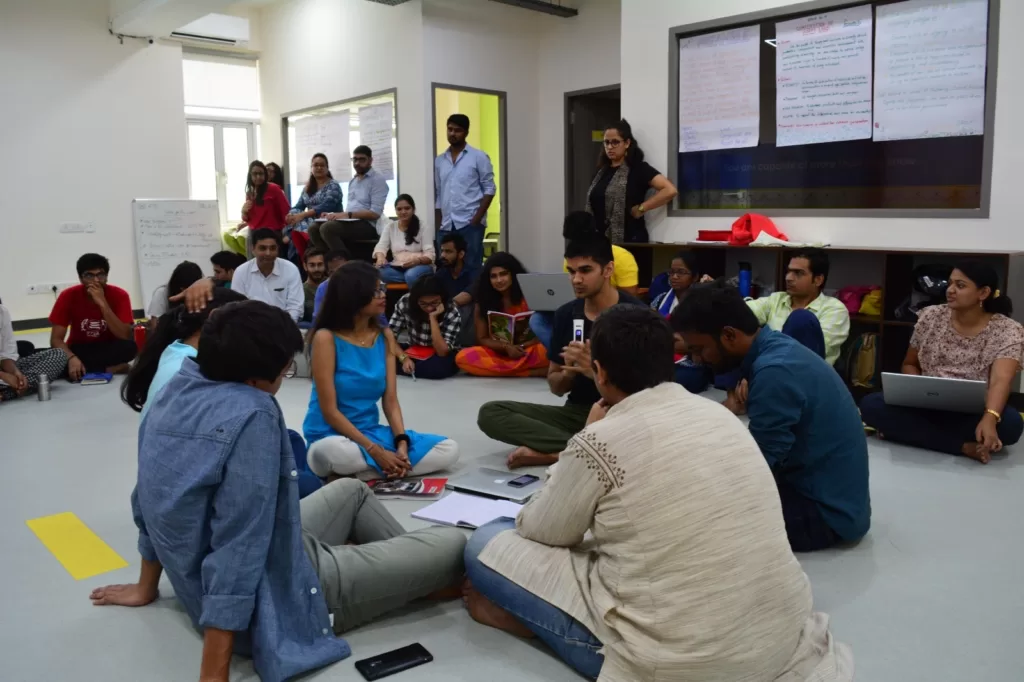
The PGP-DM goes beyond the textbooks. Students are equipped with essential skills such as teamwork, effective communication, critical thinking, and data-driven decision-making. The program emphasises the importance of networking, stress management, and a willingness to learn, unlearn, and relearn—crucial skills for future policymakers.
Assessment
Assessment is a vital part of the learning journey. The program evaluates progress through classroom attendance, Graded Individual and Group Assignments (Faculty and Bricoleurs), tests/quizzes, and end-term exams. Peer assessment in collaborative groups helps build your capabilities and prepares you for real-world challenges.
With all these elements and a robust alumni network, ISDM’s PGP-DM ensures both personal and professional growth, paving the way for enhanced career opportunities.
What career paths can young development professionals pursue in the development sector?
Here are some of the potential career options in the development sector after completing the PGP-DM course:
1. Programme Operations and Management:
– Design programs aligned with the organisation’s strategy.
2. Communications and Engagement:
– Shape the organisational brand and oversee the communications strategy.
3. Fundraising (Retail and Corporate):
– Develop fundraising strategies and engage donors for organisational and programmatic funds.
4. Strategy & Data-based Decision Making:
– Contribute to overall strategy and analyse data for informed decision-making.
5. Corporate Social Responsibility (CSR):
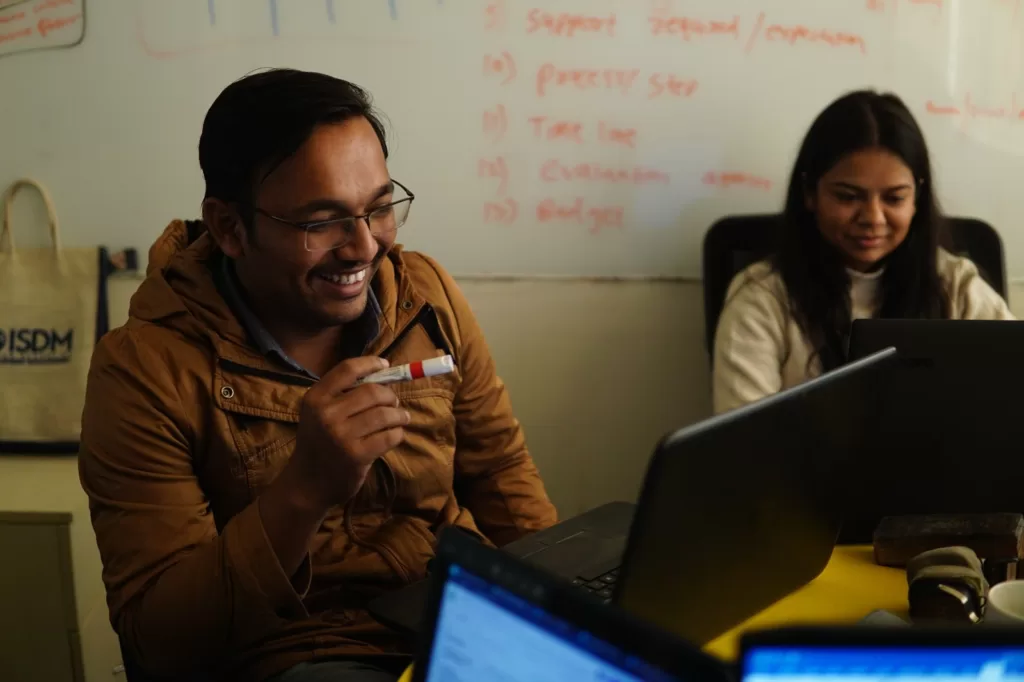
– Define CSR strategy, implement interventions, and ensure governance compliance.
6. Government Relations and Advocacy:
– Submit proposals, build relationships with government entities, and advocate for specific areas.
7. Strategic Partnerships and Alliances:
– Identify, onboard, and manage partners based on collaboration needs.
8. Monitoring & Evaluation:
– Develop M&E Framework, collaborate with technical partners, and analyze impact data.
9. EA to CEO:
– Assist the CEO in implementing organisational initiatives and data-driven decision-making.
10. Co-Founders:
– Collaborate with development sector entrepreneurs and organisation founders.
Empowered for Impact: ISDM Alumni Shaping the Future of Social Development
The PGP-DM program at ISDM provides students with diverse career options through collaborations with over 300 placement opportunities. Ensuring a student-centric approach, ISDM achieved 100% placements in previous batches. The program, designed for individuals of varied backgrounds, offers an enriching experience for meaningful contributions to the development management field.
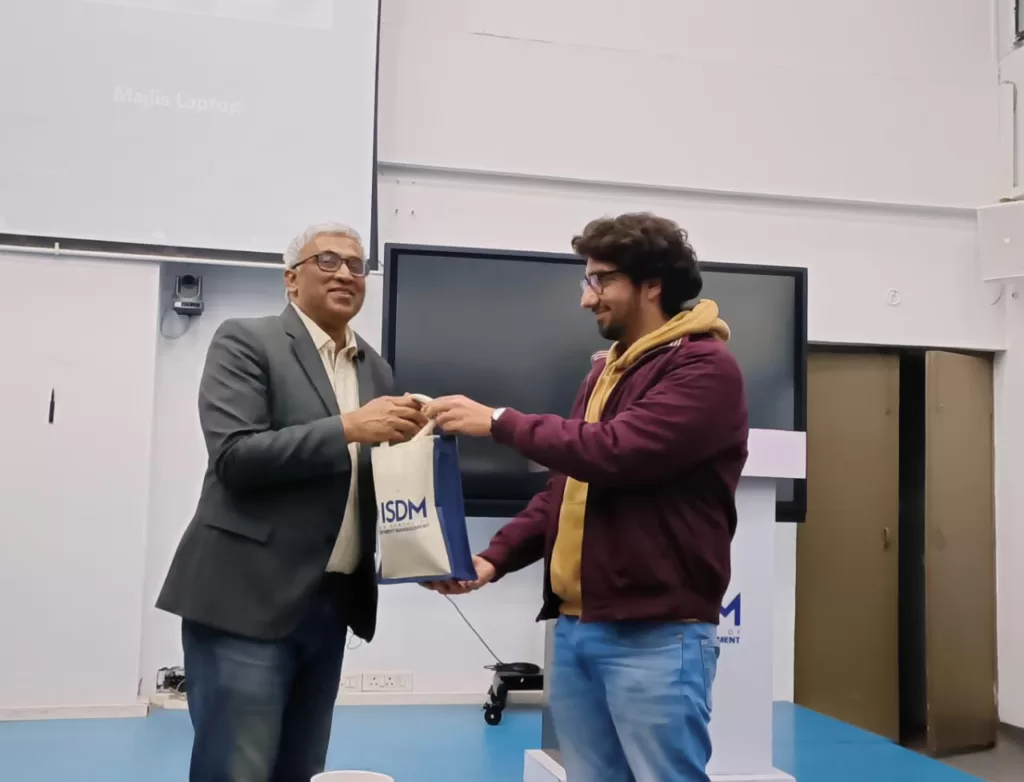
ISDM alumni now thrive in diverse roles across for-profit and not-for-profit sectors, regional, national, and international organizations, focusing on thematic areas such as health, education, water, sanitation, gender, research, and advocacy.
You can read more about the success stories of ISDM alumni on its website: Meet the changemakers and Alumni Journey – ISDM Alums
Wrapping up
Understanding how to manage development is crucial for dealing with social challenges. At ISDM, its PGP-DM program is a game-changer, going beyond the usual BSW and MSW courses. It prepares you for management roles and focuses on sustainable solutions, so you not only find a fulfilling career but also make a real impact on bigger social issues.
Its team of educators, mentors, and alumni is here to support you at every stage of your journey toward your desired career.
Ready for a transformative career ? Check out the PGP-DM program at ISDM, where your skills can drive positive change. Thus joining ISDM and being a part of the community which is already making a difference, will be a very good decision. So, do not wait anymore and submit your application now!
